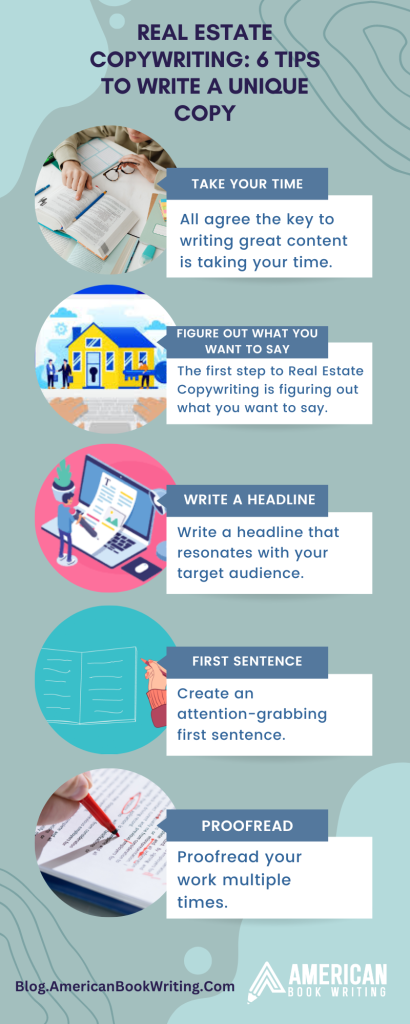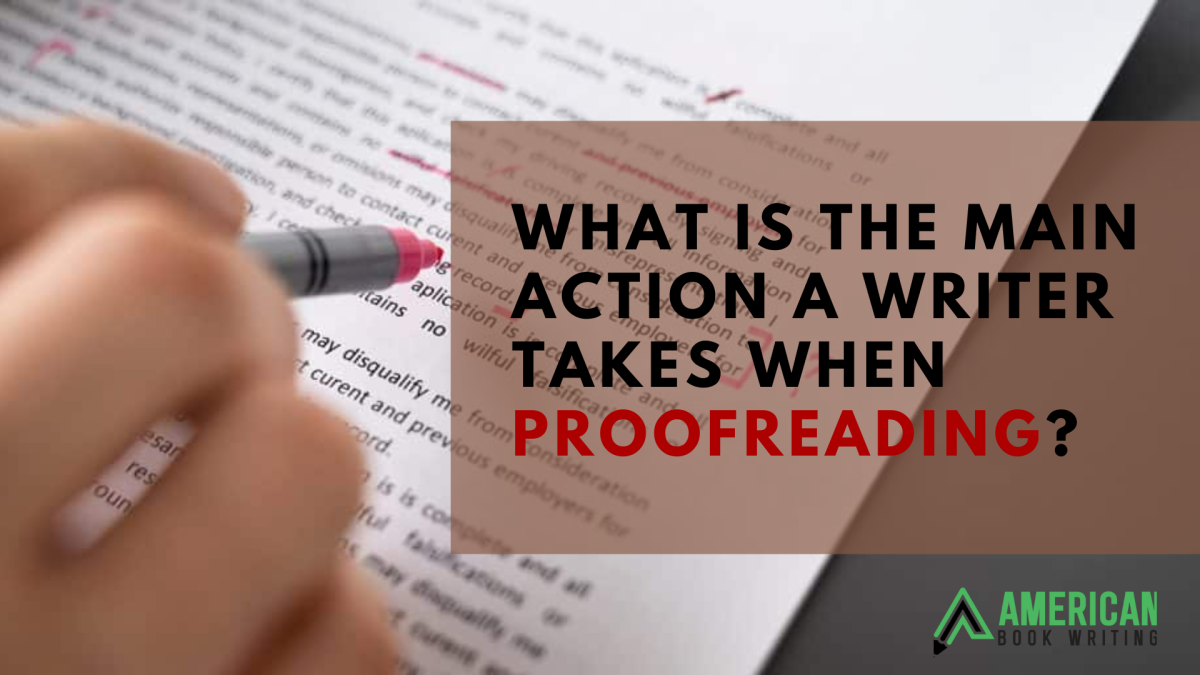Real Estate Copywriting
Press The Play Button On The Audio To Listen Complete Article!
When it comes to real estate copywriting, there are a lot of rules. But our Real Estate Copywriting team believes the most important rule is that there are no rules—other than one: write unique copy.
We say this because the competition in most industries is fierce, and everyone wants to stand out. That means your chances of success will be reduced by half unless you’re willing to try to write something different and engaging.
That’s why we want to share some tips on how you can do unique Real Estate Copywriting without sacrificing quality or relevancy.
1. Take your time.
The best blog writing services USA all agree the key to writing great content is taking your time. To enhance your understanding of effective content creation, consider exploring our guide on how to outsource blog writing.
You don’t want to rush through it and end up with something that doesn’t quite convey what you want it to. Instead, take your time and let each sentence sink in before moving on. This will help ensure that every word has meaning and purpose in your final draft. And it will also make all the difference when it comes time for people who read your work later on down the line!
So, make sure that your content is well-researched. You want to ensure that whatever you’re writing is backed up by facts and figures, so take the time to dig up some data and use it where appropriate. This will help ensure that readers see your work as reliable and trustworthy. And will hopefully encourage them to share what they’ve read with others!
2. Figure out what you want to say.
The first step to Real Estate Copywriting is figuring out what you want to say. To gain deeper insights, read our article on real estate copywriting: 8 tips to write a unique copy. Before you start writing, know your audience and product inside out. You need to understand the purpose of your copy. Know who it’s for and why they should care about what you have to offer.
Once this is clear, writing engaging content that resonates with people interested in buying real estate properties or renting homes will be easier.
Your writing style should be conversational and engaging. Focus on the benefits of owning or renting properties rather than just listing features and benefits. Remember that your audience isn’t interested in reading a long-winded paragraph about how great your company is. But they want to know how you can help them achieve their goals.
Another great way to do unique Real Estate Copywriting is by using visuals. Use infographics and videos to make your content more engaging. You can also add images to break up long blocks of text, making it easier for readers to digest the information.
3. Write a headline that resonates with your target audience.
Headlines are the first thing people see. Learn more about crafting compelling headlines in our article, how to writers a book teaser: successful tips for authors. It’s important to make them count. You want your headline to be short but also convey the core benefit of your product or service. That can be done with a promise or benefit statement:
- “How To Get Your Dream Home”
- “3 Simple Steps To A Better Mortgage”
You should also ensure that every word in your headline is necessary for its meaning. You don’t want any fluff words that add no value! The content should flow naturally from this sentence structure: verb + noun + adjective (or pronoun).
For example:
“How to Choose a Mortgage Lender” or “3 Easy Steps To Get Your Dream Home”
You can use various structures, but the most important thing is to be simple and clear. When writing headlines, it’s easy to overthink things and get stuck on one word or sentence structure. But don’t worry too much about how your headline reads. Just focus on communicating the core benefit in as few words as possible!
4. Create an attention-grabbing first sentence.
The first sentence of your Real Estate Copywriting should be a real attention grabber. It’s the most important part of your email or website, so make it count!
- Ask a question:
“Are you looking for a new home?” or “What kind of property are you interested in?”
- State an interesting fact:
“Did you know that 60% of buyers look online before visiting properties?” This will make them want to read more and engage with what else you say.
- Use quotes from other people:
Quotes are great because they show credibility and make readers feel like they’re getting an inside perspective from someone who knows what they’re talking about (even if this isn’t true). In addition, quotes can help add personality and humor to your writing. But don’t go overboard, or else it’ll feel forced! You don’t want readers to think that all real estate agents are stiff old men who never smile.
- Show them the benefits:
“Homeownership is a great way to build up your future,” or “Buying a home is one of the best investments you can make.” You could also mention how much money they can save by buying instead of renting.
5. Avoid clichés, platitudes and jargon.
While writing, avoid using the same words everyone else uses. For additional strategies, refer to our insights on how to outsource ebook writing for growth and success. Don’t use cliché, platitudes and jargon. Don’t use them if they sound like something your grandmother would say.
Clichés and platitudes are words or phrases that have become overused in conversation but don’t mean anything anymore. They get thrown around by people who think they sound smart but make you look like a fool.
Buzzwords are similar to cliché: they’re words used so often in business-speak that they no longer have any meaning! Avoid them altogether if possible, or at least try not to use too many of these types of words when doing Real Estate Copywriting.
For example:
If you’re writing about a product that’s supposed to help people lose weight, don’t say something like, “This product will help you lose weight fast.” Instead, try saying, “This product is excellent for those who want to lose weight quickly and easily.”
6. Avoid passive voice, adverbs, and adjectives.
Passive voice is not as direct as active voice. It can be used to avoid responsibility or blame.
For example:
- “The realtor sold the house.”
Here, the realtor is doing the selling, but you don’t know who bought it or why they bought it. In contrast, the active voice would say:
- “We sold this property for $2 million.”
You now know who did what and how much money was involved in both sides of the transaction using active sentences instead of passive ones!
Adverbs are words like ‘very,’ ‘really,’ and ‘so,’ which modify verbs (to love) or adjectives (lovely). Many people believe these words add color or style to writing, but really, they slow down readers.
Adverbs should only be used when necessary, as an adjective cannot take its place. If there’s no other way around, try replacing phrases such as “a very good job” with something more descriptive like “I did my best work ever!”.
7. Use active verbs and actionable words.
Active verbs are more specific than passive verbs, discover more about effective word choice in our guide, what is a claim in writing: tips for write perfect claims, which help you avoid cliché and are more interesting to read and write. They also allow you to be more concise in your writing. You don’t have to use as many words for each sentence.
The problem with passive verbs is that they can make your writing bland. They also appear overly formal, which isn’t always appropriate for your writing type.
Past-tense verbs are also more specific than present-tense verbs. This means you can use them to describe an event more precisely, making your writing more effective and interesting.
8. Proofread your work multiple times.
Proofreading is the most important step in the Real Estate Copywriting process. You’ll likely miss mistakes and typos if you don’t proofread your work. This could ruin your reputation as a professional writer.
To ensure that your copy is error-free, take a few minutes to read it aloud and look for any mistakes or awkward sentences. You might also want to read it backward–this can help catch issues like missing commas or paragraphs that aren’t clear enough (or too long).
If possible, ask someone else who knows how English works well enough (but isn’t familiar with your content) if there are any confusing parts.
Proofreading is just one of the steps you should take before publishing your website or blog post.

Conclusion
Writing unique copy takes time, but seeing the results is worth the effort!
The first step to writing unique copy is taking your time. You can’t rush this process and expect to write something great.
There are many benefits to writing unique content for your business. It will help improve your SEO rankings and make it easier for people to find what they’re looking for online. It also improves engagement with customers who want information specific to their needs–and who doesn’t want that?
Simply put, if you want more traffic on your website or social media pages (or both), creating original content should be part of your marketing strategy from now on!
In the end, writing unique copy is a process. It takes time and effort, but it’s worth seeing how much more effective your marketing materials are when they’re not just copy-and-paste jobs from other companies’ websites!




